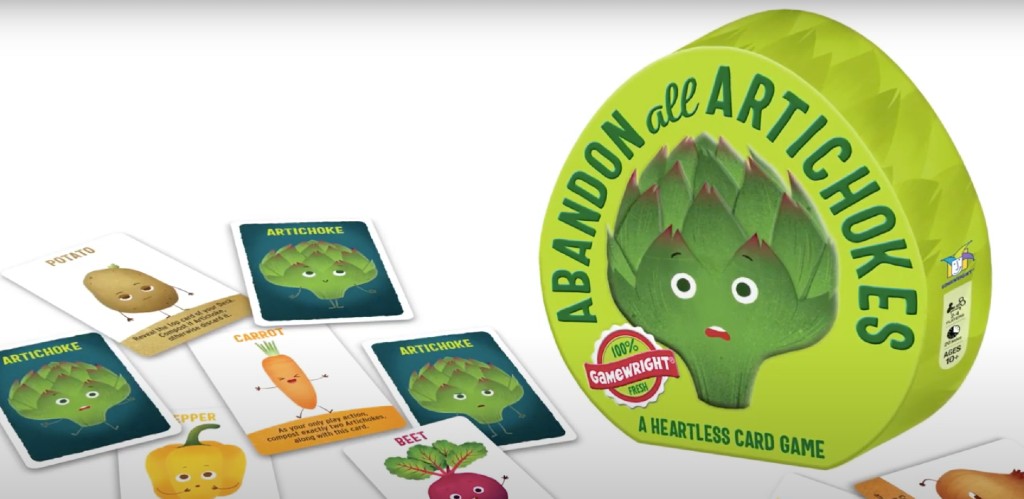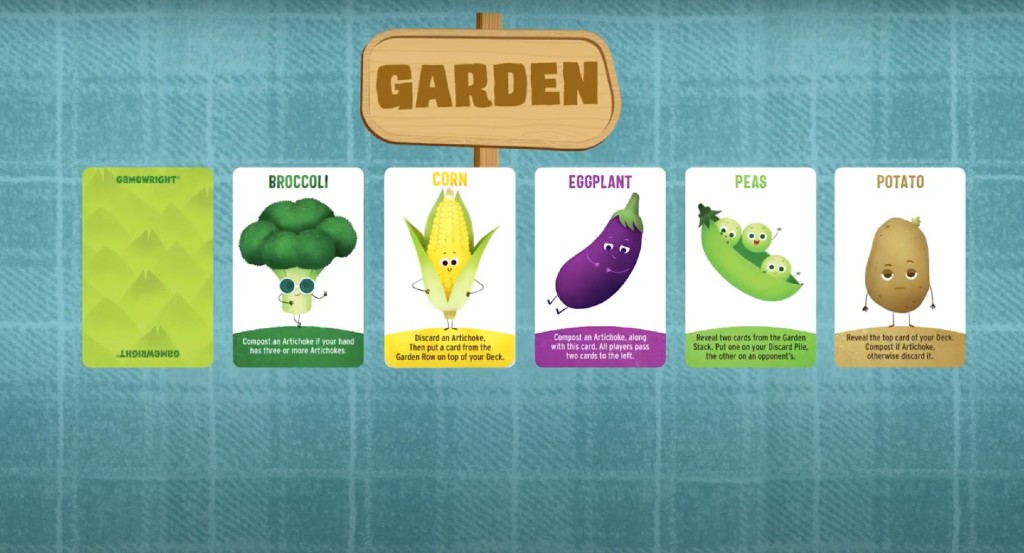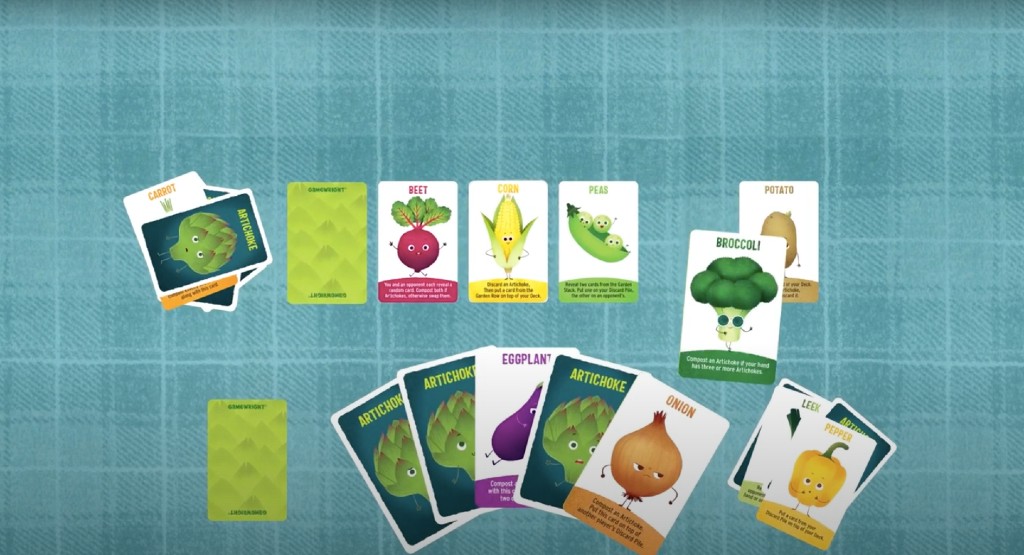
Abandon All Artichokes, like many things in this modern existence, is a game of cognitive dissonance. The artichokes are cute and fun and come with a variety of facial expressions you’ll probably enjoy. You also want them to get the hell away from you and essentially spend the entire game throwing them in the garbage.
Designed by Emma Larkins, the latest Gamewright deckbuilder is another entry into its adorably-designed but surprisingly strategic series of card games like Sushi Go! and Go Nuts For Donuts. Featuring cute vegetable illustrations by Bonnie Pang, the game starts you with only artichokes — 5 in your hand and 10 in all — and the goal is to get rid of all of them. Each round you pick up a different vegetable from the communal Garden Row and each card gives you different abilities, with the general goal being to get rid of (Compost) artichokes or simply get more cards.

A Potato, for example, lets you compost an artichoke if you draw one from the top of your draw deck. An Onion composts an artichoke from your hand, but you then have to put the Onion on another person’s discard pile, essentially making it a one-time use card. Each vegetable has a unique circumstance for play and also impacts your draw total, artichoke total and the ability for other players to find that vegetable in the Garden for themselves.
Other cards let you recycle and reuse other vegetables (Corn, Pepper) in different ways to keep cards moving from your draw and discard piles into your hand. The main goal is to get rid of artichokes, yes, but you actually win when you draw a hand of five cards with zero artichokes in it. So there are actually a few different ways to make that happen, including stuffing your draw pile with non-artichoke cards.
The game starts slow, as players take a single card from the Garden, play that card and then their turn is essentially over. But it quickly ramps up, using every card available and trying to figure out how best to get rid of cards and collect more useful vegetables as the game evolves. As play continues some vegetables become more useful than others while some valuable early-game cards become unimportant filler. The Broccoli, for example, lets you compost an artichoke if you have three or more in your hand. But later in the game that card is largely useless, as you may not have three artichokes total if you’re playing right.
Abandon All Artichokes offers a lot of strategy options that turn a cute and quick game into something you might think about far after you’re done playing. It’s also a hilarious to catch yourself wondering if you should have picked up a carrot instead of peas and it not be in the context of a trip to the supermarket. As fast as it’s played (20 minutes listed on the box) it doesn’t feel like it ends abruptly, either, as you’ll often feel a turn or two away from winning even if someone steals victory out from under you.

What I really liked about the game in particular is that it works well with two players, and even with the small group there are multiple strategies you can use to win. Keeping as few cards in your deck as possible works just as well as stacking it with cards quickly to lower your chances of pulling artichokes. There’s still a bit of variation based on what other players are doing, and just enough luck to keep things interesting right down to the last draw. In games with three or four players there are more possibilities to use others’ decks to your advantage, stealing cards and sticking early-game cards with little use on another player in exchange for more useful ones as the game continues.
If you want to get extremely invested in strategy, you can keep tabs of what cards people are picking up, where they are in their decks and help inform what decisions you make with your own cards. Playing an Onion card and giving it to the person you think is least likely to win, or perhaps taking a card from an opponent’s draw pile you think might have a Carrot coming, could be the difference in a game and steal victory from another player. It could also, conversely, completely backfire on you and hand someone the victory.
If all of that sounds like too much thought about a vegetable-themed card game, you can also just worry about your own cards and have some fun. The game is extremely fast, with rounds moving quickly once everyone knows the rules. It’s also fairly easy to pick up, so even a bad or unlucky round is fast forgotten and. In pre-pandemic play I had a lone friend dismiss the game after a single round, but for everyone else it clicked fairly immediately and they wanted to play again right away. For those that may not be sold initially, a second playthrough is usually even quicker, meaning they won’t have to endure Artichokes for very long. Everyone else willing to dig deeper into the Garden row, however, will find a lot of strategy beneath the very cute surface.
